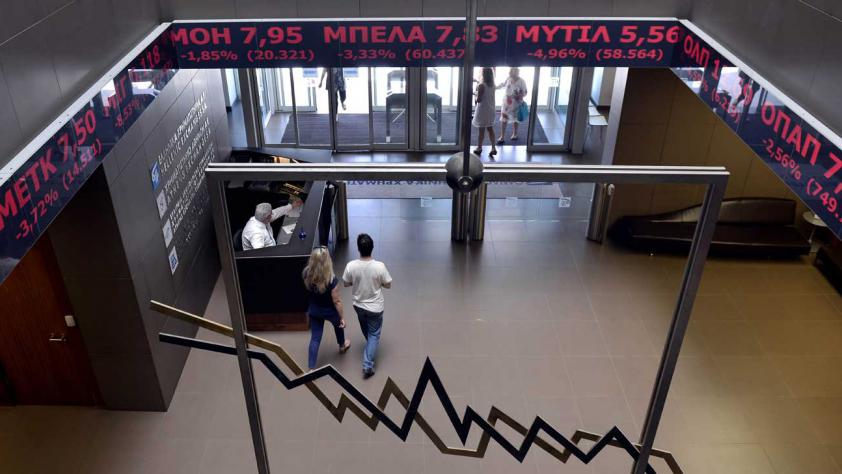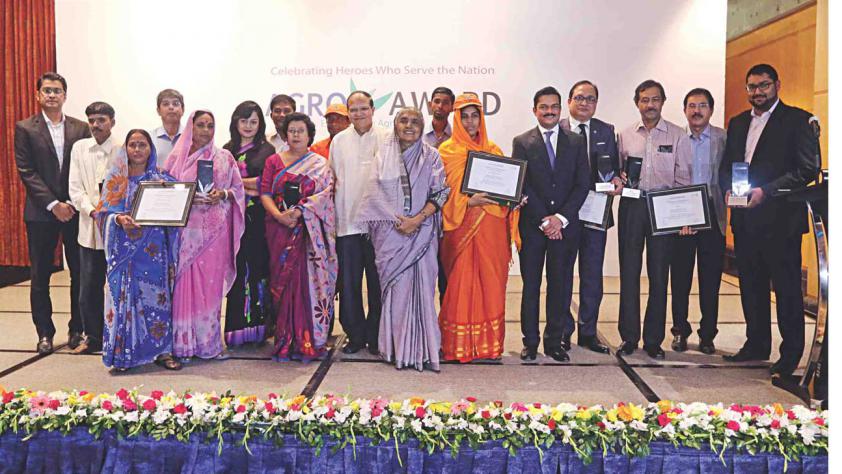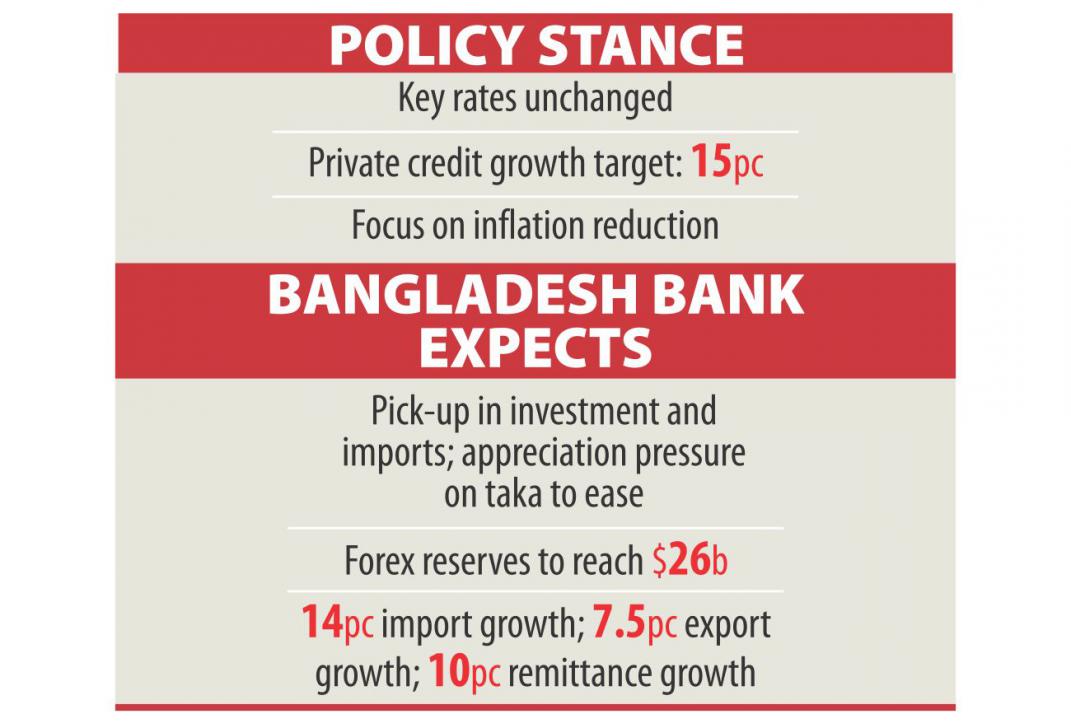Banking
Eyes on banks as Greek stock exchange to reopen

Attention will be focused on Greece's embattled banks on Monday when the Athens stock exchange reopens after a six-week shutdown over the country's debt crisis.
Attention will be focused on Greece's embattled banks on Monday when the Athens stock exchange reopens after a six-week shutdown over the country's debt crisis.
The banks are in a vulnerable position because of outflows of billions of euros (dollars) from deposits over the past six months.
Some 40 billion euros ($44 billion) has been withdrawn from Greek banks since December, according to the country's banks association. And according to news reports on Sunday, the top four lenders -- National Bank, Piraeus Bank, Alpha Bank and Eurobank -- will undergo an asset quality review later this month.
Stress tests will follow in the autumn to determine the recapitalisation requirements of each bank with European rescue funds.
Greek officials want to complete the operation before new European regulations come into effect from January 1.
As of 2016, bank shareholders and depositors will foot the lion's share of recapitalisation costs -- a process known as "bail-in" -- instead of European taxpayers.
Greek banks were also recapitalised in 2013 with funds from the country's last EU-IMF rescue package.
The reopening of the market comes after senior EU and IMF auditors held their first meetings with Greek ministers to finalise the new three-year bailout which could be worth up to 86 billion euros ($94 billion).
The last session was on June 26, a few hours before Prime Minister Alexis Tsipras announced a referendum on the bailout conditions demanded by Greece's international creditors. The main index had closed at 797.52 points, up 2.03 percent jump.
Over that weekend, Greeks rushed to bank cash machines, prompting the government to impose capital controls from June 29, followed by the closure of the banks and the stock exchange.
The aim was to protect the banking sector following the huge withdrawals by people nervous about Greece's economic and financial future. For the duration of the crisis, Greece's banks have been relying on one lifeline: an ECB credit facility called an Emergency Liquidity Assistance (ELA).
The Frankfurt-based lender last week left the ELA unchanged at 90.4 billion euros
The banks reopened after three weeks on July 20, but withdrawals and money transfers abroad remain under tight controls. Greeks can withdraw only up to 420 euros ($460) a week. The capital controls were slightly eased for businesses last week but economic activity, especially imports, continues to encounter numerous obstacles.
Founded in 1876, the Athens stock exchange has closed down more than a dozen times in its history, the weekly To Vima reported Sunday, most recently in 2008 owing to a strike by Bank of Greece staff.
News:The Daily 3-Aug-2015SCB felicitates agricultural trailblazers
 Agriculture Minister Matia Chowdhury, Bangladesh Bank Governor Atiur Rahman and Standard Chartered Bangladesh Chief Executive Abrar A Anwar pose with the winners of AGROW Award at the Westin hotel in Dhaka yesterday.
Agriculture Minister Matia Chowdhury, Bangladesh Bank Governor Atiur Rahman and Standard Chartered Bangladesh Chief Executive Abrar A Anwar pose with the winners of AGROW Award at the Westin hotel in Dhaka yesterday.
Standard Chartered Bangladesh (SCB) yesterday honoured four individuals, four institutions and two groups of farmers that have made outstanding contributions to the agriculture sector.
Agriculture Minister Matia Chowdhury handed the awards to the winners of the second AGROW Award at the capital's Westin Hotel.
Lal Teer Seed Ltd, the largest seed company in the private sector, won the award in the Best Associated Organisation in Innovation and Research category.
The company is engaged in developing, producing, processing and marketing high-yielding seeds of good quality. At present, it markets 131 varieties of 33 vegetable crops.
Brac, the world's largest nongovernmental organisation, was given the award in the Best Associated Organisation in Support and Execution category.
Amar Desh Amar Gram, a virtual marketplace that provides better economic opportunities for the farm community, got the award in the Best Use of Technology in Agriculture category.
Through the e-shop, the villagers list their produce for city buyers to place orders. In less than two days the buyers receive the produce, which they would otherwise buy at a higher price from the city markets.
Back in the village, the producers receive a fair price as the money gets electronically transferred to their bank accounts upon delivery. Seamark Group, one of the largest seafood processors, was awarded the Best Agricultural Exporter.
Established in 1976 by brothers Iqbal, Kamal and Bilal Ahmed, Seamark has grown to become one of the largest international exporters of seafood and vegetables.
The company has its own deepwater fishing trawlers in the Bay of Bengal, a processing and distribution plant in Chittagong, a distribution centre in New York and headquarters, and processing plants and distribution centres in Manchester.
Seamark's daily output of shrimp and prawns is an outstanding one million per hour. Its annual exports stand at $400 million globally, with $60 million shipped from Bangladesh.
Billal Sikder, a tomato grower from Jessore, was recognised as the Farmer of the Year in the male category, while Fatema Zohora, who has diversified agriculture in Chuadanga, won the award in the female category.
A group of farmers from Satkhira were awarded in the Farmer of the Year (Subsistence Market Farmer Group category) for their combined efforts to overcome difficulties and lift themselves out of poverty through cultivating.
Mahbub Anam, managing director and Tajwar Awal, director, of Lal Teer Seed; Sudhir Chandra Nath, programme head of seed and agro enterprise of Brac, Iqbal Ahmed, chairman and chief executive of Seamark Group, and Nurur Rahman Khan, chairman of Amar Desh Amar Gram, received the awards on behalf of their organisations.
The winner in each category received a crest and a certificate. The three winners in the Farmer of the Year categories were handed over prize money of Tk 5 lakh, while those with the honourable mentions got Tk 50,000 each.
Speaking at the ceremony, Matia Chowdhury said the AGROW Award has lived up to its promise to recognise individuals and organisations. The winners have played exemplary roles in agriculture through hard work and innovation, she said.
“We expect the AGROW Award and this year's winners and nominees to continue their commitment and inspire the millions of farmers across the country to take the sector to the next level,” Chowdhury said.
Atiur Rahman, governor of Bangladesh Bank, said he hopes the award will inspire the grassroots farmers, dairy, crops and livestock distributors and marketers and support research and logistics industries to enhance their commitment towards further development of the sector.
“I hope through this humble initiative we will be able to motivate thousands of farmers around the country to come up with exemplary contributions and help build a sustainable agriculture sector,” said Abrar A Anwar, chief executive of Standard Chartered Bangladesh that introduced the award last year.
He said his bank has reached the farm loan disbursement target set by the central bank in the last few years and is confident of repeating the success this year too.
Bitopi Das Chowdhury, head of corporate affairs of Standard Chartered Bangladesh, and Shariful Islam, managing director of Bangladesh Brand Forum, the implementing partner of the award, also spoke.
News:The Daily Star-2015
Citi awards micro entrepreneurs in city tomorrow
Citi Foundation, philanthropic arm of Citigroup and managed by Citibank, N.A., Bangladesh in collaboration with Credit and Development Forum (CDF), will award leading microenterpreneurs at the 10th Citi Microentrepreneurship Awards giving ceremony on Saturday.
The award giving ceremony will be held at Carnival Hall of Bangabandhu International Conference Centre at Agargaon in Dhaka, said a press release.
M. Abdul Mannan, MP, State Minister for Finance and Planning will be present at the ceremony with Rokia Afzal Rahman, former advisor to caretaker government in the chair.
Regina Seow, Managing Director, Corporate Affairs and Corporate Citizenship, Asia Pacific and member of the 10th CMA Advisory Council will be present at the programme.
Citi Foundation has funded the Microentrepreneurship Awards programme for the 10th time as part of Citi's ongoing commitment to the field of microfinance.
The objective of the programme is to highlight the achievements of some of the most innovative micro-entrepreneurs in Bangladesh.
Monetary policy rates remain unchanged

The central bank today announced its monetary policy for the first half of the current fiscal year, keeping policy rates unchanged.
The repo and reverse repo rates remain at 7.25 percent and 5.25 percent respectively as they were in the previous monetary policy.
The monetary programme for the new financial year is designed to contain credit growth within limits consistent with real sector output growth, said Bangladesh Bank Governor Atiur Rahman, while announcing the policy for July-December period.
“[But] BB will have no hesitation in considering easing of the repo and reverse repo policy interest rates to appropriate extent immediately as headline point-to-point and core CPI inflation assume clear downward edging turn,” he said at a programme at his office.
The Monitory Police Statement (MPS) said this is a cautious but explicitly pro-growth monetary policy stance supporting the 7 percent growth target and the 6.2 percent inflation target for 2015-16.
The central bank targeted private sector credit of 14.3 percent as of December and 15 percent for the whole fiscal year.
The new target is 0.5 percentage points lower from the target of the previous monetary policy, but 1.4 percentage points higher from the actual achievement.
The private sector credit growth was 13.6 percent as of May and will remain the same in June, against the growth target of 15.5 percent.
News:The Daily Star/30-Jul-2015Rate cuts hinge on inflation's downward curve: BB
The central bank unveils monetary policy statement for Jul-Dec
The central bank yesterday signalled cuts in policy rates in the coming months if inflation continues its downward trend.
Bangladesh Bank will have no hesitation in easing the repo and reverse repo policy interest rates right away should the headline and core CPI inflation take a clear downward turn, said Governor Atiur Rahman.
Rahman's comments came yesterday at the unveiling of the monetary policy for the first half of the fiscal year.
The repo and reverse repo rates have been kept unchanged at 7.25 percent and 5.25 percent respectively since February 2013.
General inflation fell from 6.87 percent in January to 6.4 percent in June.

A decline in inflation over just one or two months would not induce rate cuts, said Biru Paksha Paul, chief economist of the central bank.
Core inflation, which counts non-food and non-fuel inflation, is on the rise: it rose from 6.08 percent in January to 6.74 percent in June.
Non-food and non-fuel core consumer price index (CPI) inflation has remained upward in May and June, indicating that the task of bearing down on inflation expectations is not yet over, Rahman said.
The central bank has opted for a restrained but explicitly pro-growth monetary policy stance, one that supports the 7 percent growth target and the 6.2 percent inflation target for fiscal 2015-16.
Private sector credit may grow 14.3 percent for the first half and 15 percent for the entire fiscal year, according to the BB.
The new target is 0.5 percentage points lower than the one in the previous monetary policy but 1.4 percentage points higher than the actual figure.
As of May, the private sector credit growth stood at 13.6 percent and was most definitely the same in June, against the growth target of 15.5 percent.
Rahman said some quarters hold the view that setting high targets for credit expansion is needed for stimulating higher rates of GDP growth.
However, pumping in excessive liquidity in absence of progress in addressing the infrastructural adequacies and other well-known investment impediments will only stoke inflation and worsen social inequity by encouraging unproductive speculative pursuits.
The stance is serving the economy well in maintaining a moderate inflation on a sustained basis, Rahman said, adding that the new MPS is almost the continuation of the previous one.
“The car is motoring ahead -- we don't want to create any instability by increasing or decreasing the speed of it.”
The central bank has put emphasis on inclusive growth as part of the country's efforts to improve the quality of people's lives.
Owing to inclusive growth, which has created a huge number of jobs, there had been no social unrest in Bangladesh in spite of political turmoil, he said.
Besides the ongoing inclusive financing for farm and non-farm small and medium enterprises and the export development fund support for exporters, new medium to longer term financing windows will be opened in fiscal 2015-16, said the statement.
A fund for $500 million will be created to support medium- and long-term projects, especially environmentally responsible investments at lower interest rates.
The World Bank will contribute $300 million as credit, and the rest will come from the central bank.
The WB fund will be for medium to longer term foreign currency financing of manufacturing projects, while the central bank's part will be used for green initiatives in export-oriented textiles, apparel and leather sectors.
The central bank expects 14 percent growth in imports, 7.5 percent growth in exports and 10 percent growth in remittances this fiscal year.
The recent sustained pick-up in investment and consumption imports will ease the appreciation of the taka in the near-term, enhancing its export competitiveness, according to the statement.
It said the growth rate of foreign exchange reserves will slow down and the import coverage will fall before reserves turn out to be a liability.
The foreign reserves are projected to reach $26 billion in fiscal 2015-16 from $25 billion the year before, but the import coverage will marginally fall from 6.2 to 5.7 months.
The statement also touched upon the issue of classified loans, stating that the central bank will not be lenient in clamping it down.
While the cases of the credible borrowers with potential for better businesses will be reviewed, the central bank will not hesitate to take any stern measures against the habitual defaulters and bad borrowers with a track record of persistent delinquencies.
About keeping the policy rates unchanged, Paul gave the example of repo rate of 7.25 percent.
He said it has remained the same for long, which may signal that it has remained stagnant. “But we have kept it unchanged in an effort to keep the inflation in check.”
The chief economist said the central bank sits for a meeting every month on the monetary policy. “If we see there is demand for credit and inflation is stable we will accommodate the demand.”
SK Sur Chowdhury, a deputy governor of the central bank, said the BB is aiming to lift people from the lower strata of society without bringing down those from the higher echelon.
Allah Malik Kazemi, change management adviser of the central bank, said the targeted private sector credit growth is enough to help the government achieve its GDP and inflation targets for the current fiscal year.
Deputy Governor Nazneen Sultana said the central bank, with support from the National Board of Revenue, is closely monitoring the foreign exchange transaction.
The system is now transparent, so there is no possibility for irregularities, she added.
News:The Daily Star/31-Jul-2015


